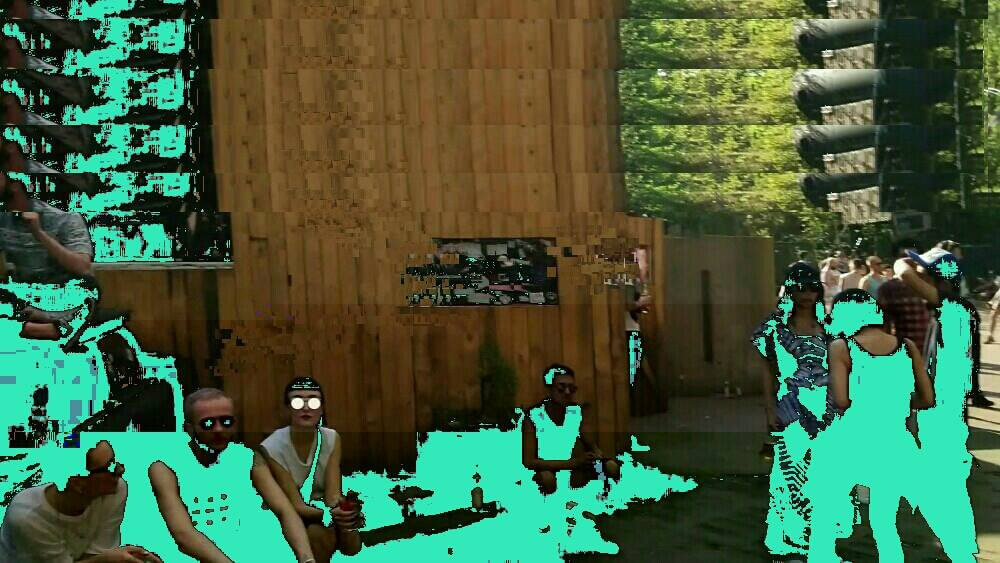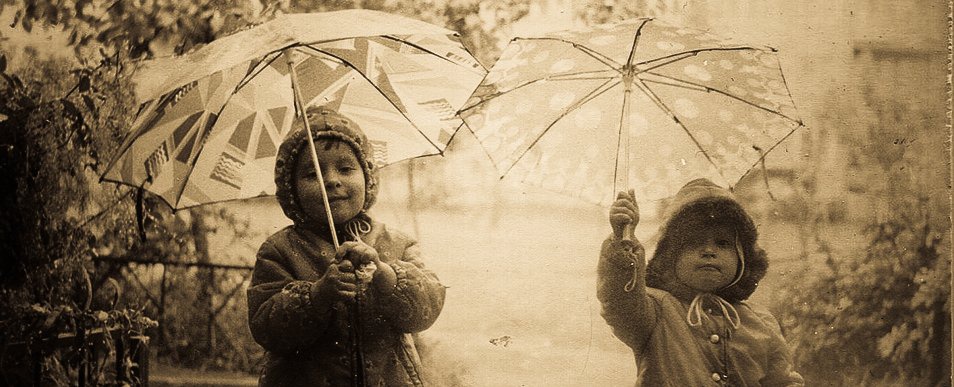When I come to a queer party, I try to find myself in a space free from both prejudice and stereotypes, but, surprisingly, the breath of patriarchy is often felt more strongly at queer parties than outside their walls.
I've loved partying for as long as I can remember. Even at the age of fifteen, I somehow managed to sneak into the only nightclub in my small hometown, and even carry a little bottle of vodka in my underpants, which was enough for a teenager for the night. Then I went to the clubs of the capital which were more over-the-top and less aggressive, but their audience was not more friendly. These were places of mass consumption, and it is very funny to me now to imagine how my presence there was perceived from the outside. Of course, I behaved as discreetly as possible and always kept a dozen of "masks" ready, which could be useful to me in case of conflicts. In general, going to a club was not much different from going to a bank or university, except for the degree of intoxication, which brought a degree of fun, but at the same time increased the risks, since clubs were the most unprepared territory for deviant behaviour. However, I did not know of any alternative to this night life, and so I was more or less content with what I had.
For the first time, my horizons significantly broadened thanks to underground DIY-raves. These were one-time, off-site events in forests, abandoned factories, military bunkers, where fans of heavier genres of electronic music, united in different formations, so-called sound systems, brought their sound, set up minimal light, turned on the generator, and the party began. Information about such events was sent to a limited group of like-minded people by email, and then it was spread by word of mouth, but, in any case, if it was not a festival, more than 100 people rarely got to their destination through the darkness of the forest using maps, which created an atmosphere of a very closed event and a sense of unity.
 © Gleb Kovalsky
© Gleb KovalskyMy first rave was mind-blowing. It seemed to me, without the influence of any substances, that I had irretrievably dropped out of the real world. A lot of strange and good-looking people, speedcore, which instantly drives away all the previous thoughts from your head and cuts off the entire outside world where you existed a couple of hours ago, the walls of an underground bunker flooded with red light, and outside it's darkness, and the absolute silence in the forest of the night if you move twenty meters away from the bunker. There was magic in everything, everyone noticed it and calmly shared their feelings with strangers, which also looked very unusual and pleasantly surprising for me, adding fabulousness to everything that was happening. It was a watershed moment when I realized what a party might look like, it was a starting point of my search for the perfect space for nightlife.
I've been visiting such forests for two years. Along with an invitation, the organizers of some of these raves often sent out something like a set of rules, something typical for raves, enlisting different "no's". I was a little surprised that this list sometimes included, for example, "no racism", but not "no homophobia". Maybe this is why I have never noticed any manifestations of racism (which does not mean that they weren't there), but the same cannot be said about openly homophobic behavior. Or did the organizers themselves have some special attitude to certain types of discrimination? In any case, no matter how magical my first forest raves were, after a couple of not very good events, it seemed to me that I belonged to a certain community that was AGAINST. The forest raves were a very radical alternative to the existing urban club space, but I felt, and it turned out to be significant for me, that this alternative was very much against the existing system, but not really FOR something common (common with my personal preferences?). And so in this AGAINST movement I met people with a variety of values which I did not and do not like, and some of which are completely unacceptable.
I decided to take a break from my nocturnal wanderings in the woods, and it so happened that during this period, an alternative urban scene suddenly began to revive with new alternative spaces, people and ideas that, in my opinion, were just FOR something rather than AGAINST. In the case of techno, which has once again come to the fore, this is unavoidable, since it carries a very specific history and culture that is difficult to ignore, no matter where it sounds. Raves have become more accessible, at least geographically, technically more powerful and many times more numerous.
 © Gleb Kovalsky
© Gleb KovalskyThe organizers preferred not to publish any political statements or manifestos typical of a classic rave, as I understand it, in order not to attract excessive attention of the authorities and not to scare off potential visitors, hoping that the genre itself would prescribe certain norms of behavior. And the genre did pretty well. In general, the first major techno events* did have a fairly comfortable atmosphere, despite the fact that the audience was as diverse as possible. I think the atmosphere was preserved due to the fact that the organizers managed to gather the majority of ravers from young people who had previously sat at home and waited for this format, from people with a certain cultural background, quite liberal values, manifested both in their attitude to others, their behavior and their appearance, often very different from the one of the general public. Therefore, everyone else somehow felt that they were a minority, and if someone wanted to force someone to explain their clothes or gender, they simply did not want to stick out in an alien environment.
When I talk about comfort, at that time I understood it as "Most likely, I won't be killed here". In other words, if I could switch from thinking about the danger for my life and health and try to enjoy music, then I considered the space comfortable.
The sense of being allowed to do what you want to, of expressing yourself — it has grown even more with the resurgence of the urban techno scene. Completely and utterly, my concept of comfort expanded to unthinkable limits when I started traveling and attending techno parties in different cities of Europe. Of course, it was Berlin which blew my mind the most effectively and opened my eyes to how you can hang out.
 © Gleb Kovalsky
© Gleb KovalskyI went to my first party in Berlin on a Sunday afternoon. About a hundred pumped-up guys in jocks, girls, often topless, of all ages and skin colors, brutal bearded divas in stilettos and more modest-looking, but no less satisfied with such a great option for Sunday leisure, people basked in the midday May sun by the river in the garden of a former pasta factory. House was playing on the porch, and fifty other hedonists were there, creating an atmosphere — besides an impression that Monday won't come — as if today would never end and life would look like this every day: an endless celebration of this sun and this moment here and now.
By nightfall, everyone began to move inside the building. All night, leaving the main techno dance floor for short breaks, I tried to explore all its halls and corners, which then seemed countless. An almost complete lack of lighting left me being able only to sense what was happening around me. And it was easy to identify it, because almost everywhere there was sex. Including on the dance floor, above the dance floor, near the dance floor. But sex was so well integrated into the general atmosphere of the party that it wasn't exactly distracting — rather, if it hadn't been there, so ubiquitous, it would have caused a certain discomfort, it would have felt like something is lacking. And, it's important to note that it wasn't a sex party, so you felt absolutely OK if two sweaty hunks were having oral sex next to you while you were dancing. And vice versa. No one obliges anyone to do anything, everyone enjoys the party and does what they most want at this particular moment, without restraining themselves in their desires and their fulfillment.
Then there were other clubs and other parties, they had different shades of techno, the predominance of this or that audience, but the constant component of any party in Berlin was one thing: a sense of boundless freedom and self-expression.
However, over time, the magic castle, having become very familiar, began to slowly crumble. After experiencing a state of euphoria, which I felt probably for the first two years of my visits to Berlin, I was able to afford some relative sobriety to pay more attention to the surrounding details, which began to fall out of this castle one by one.
 © Gleb Kovalsky
© Gleb KovalskyThe Berlin parties I've been to don't use the prefix "queer". Because they are a priori queer. This is evident from the symbols they use in their promos, from their invitation texts, from their rules, where the first points are declarations of zero-tolerance for any form of discrimination (and all groups are listed, not generalized) and a confident welcome to gays, queers, trans, etc. This is the basis that I allow myself to build my criticism on.
I want to describe my last party in Berlin because this experience is the most recent in my memory, and its aspects that I discuss do not differ much from my previous experience.
This is a very well-known party among open-minded people, it takes place once a month and is extremely left-wing. I had long wanted to get there, although I did not expect to see something radically different from what I had already seen. And, basically, I didn't.
 © Gleb Kovalsky
© Gleb KovalskyI love this transition very much: you stand in a queue for a long time at night on some industrial street, among factories, you get cold, the queue is quiet, and when the bouncer, if you are lucky, shows you that you can go in, you get through some entrance and find yourself in a noisy, hot, sweaty room, which is full of a completely different life than the one you came from a minute ago.
So. Who meets us behind the gates to this nocturnal island of freedom and hedonism? Dozens of athletic light-skinned guys, small-talking and rubbing the bulging parts of their beautiful bodies against each other without embarrassment. There will always be an overwhelming majority of these beauties not only in this corridor, but also at the whole party, and at all other similar events. Does this upset me? Not yet, because there aren't many places where you can meet so many good-looking guys at the same time, even if almost all of them represent only one spectrum of what I like. Do I feel slightly uncomfortable about being significantly different from them? Yes. Should I feel uncomfortable when I go to a queer party where I'm going to spend at least 24 hours enjoying myself? Not sure. But this is my problem. As well as all subsequent ones.
Or is it not just mine?
I'm wearing jocks, a short fishnet dress, and shoes on a fifteen-centimeter platform. My hair is loose. I like the way I look, and this significantly increases my chances of feeling great tonight. I make my way through the crowd closer to the DJ to occupy the place near the main sound source and get lost in the latter, but I can't do it right away, and I turn a little to the side, then face the dance floor and try to run my eyes over it as unobtrusively as possible, so that I can absorb the energy of people dancing in euphoria and tune in to the general vibe. But I think I shouldn't have done it.
If I look closely at the crowd, I see only a couple of girls or people with more or less feminine expression, lost in the sea of hundreds of hot males. The spectacle is stunning in its uniformity, but only if you look from behind a glass wall. Being in the very cauldron of this masculine concoction, I involuntarily begin to feel like an outsider. It's pretty stupid, because they probably don't care about me, and I can just throw myself into the music and forget where I am, but damn it, what I expect from a rave, especially from a queer rave, is not a sense of detachment, but precisely a sense of unity that bound the participants of the raves who originated this culture, that reminded them of the basic human need for other people. Yes, sometimes at parties I can go far into the depths of myself, and techno only contributes to it, but during raves it happens because I am surrounded with a large number of like-minded people, who almost become my family for a night, and therefore I feel absolutely safe.
 © Gleb Kovalsky
© Gleb KovalskyAt some point, I manage to relax, and I spend about three hours on the dance floor, giving myself to the music, opening my eyes now and then to see my friends and check if I'm too far off the ground. In the morning, after getting tired of dancing, I smoke with a friend near a darkroom. Sex, an unavoidable subject in discussions about queer parties in Berlin, which by default are sex-positive, is another notable example of exclusion and the dominance of patriarchy-reeking standards usual for the outside world.
I watch as handsome men (of course, with an extremely masculine appearance), as if on a conveyor belt, go in and out through a massive curtain covering the entrance to a lightless space. I begin to distinguish them by their faces, which is unexpected, since they look almost the same, especially in the semi-darkness: always white, mostly dark-haired, with a bare torso, and more often with a beard. I see them changing their partners, all looking like twins, flashing before my eyes, in, out, in again; it seems as if nothing in the world will ever break this chain. At some point, we also wanted to somehow change the situation to a hotter one, and as soon as I went into the darkness, my companion heard a guy saying that girls do not belong here (it's strange that it was not addressed to me). Yes, maybe it was just some asshole, and the situation is not typical for this place, as my friends later assured me, but combined with the way I felt by the end of the night, it was too much.
I also remember another party. Sunday evening, it was still light outside. I prepared myself for my last night in Berlin watching the space fill up with people arriving just before Monday night. The picture was less harsh, but in general, it followed the "best" traditions: it was raining men. And then, as if this is the final exit in Rupaul's Drag Race, four most spectacular drag queens dramatically enter the territory of the club. And I understand how the whole picture missed this puzzle, how the space lacked it, but at the same time I see a look of disdain and disgust on the faces of a large group of guys who were no less fitting up to this point. Yes, this is my personal perception. Yes, no invasive or insulting actions followed that look, but I felt as if someone spat in my face, even though I was chilling in pleasant company away from them.
 © Gleb Kovalsky
© Gleb Kovalsky"Well, Gleb, why all the pageantry?" — I think aft"Well, Gleb, why all the pageantry?" — I think after a party that left me with an unpleasant aftertaste and raised a number of questions. Why all these dresses? Whose mind are you going to blow at a queer party? Indeed, after some time, I reflected on my actions and did not find any logic in them: again and again, I put on all these provocative clothes like armor as if I go to war with all sorts of "norms" and stereotypes, when in fact I go to a queer party in the most uninhibited, friendly city, where I plan to just relax.
— Baby, seriously, who are you going to fight? You're among your kind of people.
— It's true… But, perhaps, not quite. Maybe if I still find that I'm almost the only person in a given queer space who's not a man in a chest harness, it means that my actions still have meaning and necessity?
— It's true… But, perhaps, not quite. Maybe if I still find that I'm almost the only person in a given queer space who's not a man in a chest harness, it means that my actions still have meaning and necessity?
When I come to a queer party, I try to escape from the traumatic reality and find myself in a space free from both prejudice and stereotypes, as well as from the desire of others, and sometimes my own desire to follow imposed social norms, especially in terms of gender and sexuality. But, surprisingly, the breath of patriarchy is often felt more strongly at queer parties than outside their walls.
In the rave space, people lose their social status, age, and gender. Your visual image remains almost the only thing that characterizes you in the crowd, it is your ID, in a sense it is not only your personal, but also a political statement. While in ordinary life we mostly try to mimic what surrounds us, the friendly night space serves us as a place where we can be who we are, or who we want to become today.
 © Gleb Kovalsky
© Gleb KovalskyAnd I'm not saying that all men should urgently put on a dress, but rather that, perhaps, it would be nice to take an opportunity and instead take off all the extra things, to take off this armor, this camouflage that we have to use every day to feel safe? And see what's going to remain: anything can be there, just like nothing at all.
And yes, maybe you will want to emphasize your brutality even more than in everyday life, but are you sure that this desire is really yours and not an imposed one, provided by tabloids and a picture on TV?
Basically, in my ideal world, I see parties without clothes, so that we could get rid of everything that would define us as much as possible. But even so, we will remain with the color of our skin, with our muscles, our fat, our genitals. To really remove everything, it won't be enough even to break up into atoms, but we can't do anything about it yet. To my regret, very few people set such a goal.
But, of course, when I talk about taking off everything, first of all I don't mean clothes, Andrew Christian jocks or a Nike top. I mean removing all the conventions, prohibitions and fears that the whole world reinforces behind these walls. Allowing yourself to look at yourself and the people around you as they are, not through the prism of beauty standards, sexuality and other attitudes.
As sociologists found surveying rave participants, most of them feel "authentic" and "real" and describe everyone around them the same way. Unfortunately, I don't feel this way, although I would very much like to.
 © Gleb Kovalsky
© Gleb KovalskyYan, Berlin (cisgender pansexual)
25 years old
- Tell me, what is a queer night club space / party for you? Which goals do you have when you go to a queer party?
For me, first of all, it's another form of entertainment, which includes communication, meeting new people, music, dancing, and maybe something else. This is a special microcosm, a microcosm that functions according to completely different rules than ordinary social life does. One of the main goals is to plunge into this effortless atmosphere with like-minded people (or someone of that kind), who, in one way or another, charge each other with special energy. This is a unique opportunity to feel that you're a huge part of everything that is happening, and at the same time something small and invisible, able to get lost and dissolve in all the chaos at any time. It's like some kind of adult game: you can play it and learn more about yourself, about your desires and fears. In many cases, you set up social experiments on yourself and others, which later help you understand the psychology of a person better. In addition to the social component of each party, there is also an aesthetic one. It's indispensable, it is in the same position as the social one. This includes rooms that allow everyone to turn cosmic space into chaos at their own will, and music that, together with the visitors, creates the entire atmosphere. The feeling of complete security is also important. I don't think about it much anymore, but it's very nice that you rarely see a judgmental look directed at you (especially when you're not sure whether you really saw it or it's time to go home). I like it when taking photos is forbidden and I don't have to worry about someone having pictures of my heroic actions and my face expressing all my emotions at the same time. It feels like everything that happens at the club stays there. This gives an additional sense of freedom and disinhibition. Despite the fact that I express myselfthrough my appearance less and less, it is still important to me — to some extent — to be accepted and understood at the place I'm going to. Not necessarily by everyone, it's not my goal, but I always know that there will be people with similar aesthetic preferences.
- Have you ever felt excluded from the context where you found yourself? What was the reason for this?
- I have. This happens when there is a conflict of values or interests. Well, for example, there are parties that mostly attract very adult men and very young boys who are mutually interested in each other. I'm not interested in that, and I don't usually share their values. At the same time, somehow I still very much detest such events from the aesthetic point of view. At similar parties, they still like to put everyone in homonormative boxes. For example, I never even thought about what label I could apply to myself. I remember that someone once shouted "hot twink" at my back. l was confused as f*ck. This is also a conflict of interest, and in such cases I feel excluded. In fact, I don't know how to categorize all the parties that I feel excluded from, but I have a feeling that almost all the guests of those parties are connected to one particular media source which is very primitive and boring.
- Do you think that night life can have an impact on public consciousness, regarding stereotypes and prejudices about gender, sexuality, etc.? Can you think of any example directly or indirectly related to such influence?
- I think that, to some extent, it can. It still seems to me that firstly it's important to educate people, and then there will be demand for queer parties. It's a complicated question. Night life can break down some stereotypes about gender and sexuality (for example, initially it was difficult for me to see the scars from mastectomy on trans men in a dark room because I was nearby in a hypersensitive state, but now it seems completely normal to me). But, alas, I formed some other stereotypes that I didn't have before, in relation to groups of people that I had not met in ordinary life before I became a regular queer party-goer. On a global scale, I think such parties do not change anything, since they exist for the sake of a rather small audience, who associate with one another anyway. For the general public, the same clubs present themselves very differently, even in Berlin.
 © Gleb Kovalsky
© Gleb KovalskyYaroslav, Berlin (cisgender gay)
32 years old
- Tell me, what is a queer night club space / party for you? Which goals do you have when you go to a queer party?
- First and foremost, I look for a safe space. Space and time, where you can be and behave exactly as you want, without thinking, without looking back and without filtering anything. Some rules of behavior, of course, exist, but they are primarily aimed at preserving the same degree of freedom and comfort for other participants.
Getting rid of social roles, masks, or the opportunity to try on others for a while. A "vacation" from the current reality and responsibilities, debts and expectations of third parties. You're like Alice in Wonderland, but you don't even have to be Alice. You can also be a Caterpillar, a Red Queen, or a tree.
People who go there. It is at the same time an absolutely heterogeneous mix of genders, professions (except, perhaps, electricians — I am yet to meet one), ages (17-82), social statuses, languages and geographical origins, but at the same time more or less homogeneous in its views, filtered by bouncers and, most importantly, self-regulating. The self-filtration system here works so smoothly that it is almost impossible to meet a person inside, next to whom you would feel outright uncomfortable or unsafe.
Atmosphere and location. This scene existed for a long time, it constantly has high demand and its audience is quite selective, so the organizers really put a lot of effort into creating unique vibes for their events. Moreover, Berlin still attracts a lot of artists, and I know only one person who has nothing to do with this scene. A quick glance at a photo would be enough to tell you what kind of party it is. Although photos and videos, fortunately, are strictly prohibited. Choosing a club and a party for the weekend, you also choose a world, an atmosphere and a space where your character will perform a caterpillar for the next 34 hours, for example. It's a kind of online RPG, only in reality.
Communication. You can't stay alone there, unless you want to, because all participants start to resonate with each other to a certain degree, and due to all the points I have already mentioned. This communication will not often extend to the space outside the party, but quite often it's not really the point.
Music. I could have omitted this point, but only because someone else does this job so well that I don't even need to think about it. Not once in two and a half years have I watched a line-up before going to a club. In other words, when I go to a familiar party, where there are two or four dance floors and many other places to check out (including dark rooms), I can be sure that at any time I will find music that I really like. Of course, I do know a few DJs whose music I particularly like, but they are not the major influence on my decision to go somewhere or not.
 © Gleb Kovalsky
© Gleb Kovalsky- Have you ever felt excluded from the context where you found yourself? What was the reason for this?
- I wanted to reply "no", but I remembered that it's a "yes". This happened twice, and both times we were in a famous gay club in Berlin. I would like to emphasize that famous does not mean good, at least from my point of view. I really felt very little in common with the atmosphere, people and the message of everything that was happening there.
- Do you think that night life can have an impact on public consciousness, regarding stereotypes and prejudices about gender, sexuality, etc.? Can you think of any example directly or indirectly related to such influence?
- I doubt it. It may even generate new ones. In general, this is a product in itself, and people who are not connected with this scene will not be affected by it in terms of stereotypes or any other issues. But the scene can influence general tolerance and openness to the new and different through its representatives. For example, those areas of a city where there are a lot of representatives of the scene are the most open, bright and free from stereotypes. Of course, it's an interdependent process. But when your cute neighbor Clara, who feeds your cat all week long and separately collects waste, goes out on knee high boots and in distinctive clothes and is absent for the whole weekend, and then comes back with smeared makeup on Monday, you realize that she is still the same cutie, only with a certain hobby.
 © Gleb Kovalsky
© Gleb KovalskyOlezha, Minsk (pansexual genderqueer)
24 years old
- Tell me, what is a queer night club space / party for you? Which goals do you have when you go to another of the queer party?
- For me, a queer party is an opportunity to get everything that is not available in other parts of my social life. It is communication with people whom you've known for a long time, who feel like a family, it is dancing, it is music, it is talking in the smoking room, it is a space for showing your irresistible and bright side, and a performance, and a fashion show. It is also a kind of intrigue, and eternal anticipation of meeting someone new and interesting. Sometimes I have such a goal for a party: to go away with someone I don't know and have sex with them. Or sometimes I want to passionately kiss someone attractive and nice. Probably, these last two goals are always present in the background of my thoughts with different degrees of intensity. This is about the basic needs for love and pleasure, the joy of life.
- Have you ever felt excluded from the context where you found yourself? What was the reason for this?
- I almost always feel excluded from the context, except when I'm with my friends, and even then not always. I run into some wall of misunderstanding, being perceived differently. It's very, very rare for a stranger to radiate openness and interest. I used to think it had something to do with the clothes or demeanor that I sometimes choose, but now I feel that it's a general impression that I give. For some time, I was convinced that it was normal to be denied attention, hugs, or sex because of some individual traits that people pay attention to — and yes, in general, it is really okay, everyone has their own preferences, but still a huge number of these refusals and exceptions from the context make you take a critical look at what is happening. Our culture is hierarchical, and it affects our preferences. So the problem is not so much the people, but how power and influence are distributed among them. Having more power, some people create a context, which, in turn, forms the preferences of others. And all I can do is accept this situation. That in this culture, because of some features of the body and personality, I will be deprived of a fulfilling social, sexual and romantic life that I would like to have, my choices will be limited.
- What do you think would make the space more comfortable for you?
- I think it should be a party attended by aliens who haven't lived in our culture. After all, our white heteroculture is permeated with misogyny, racism, and other prejudices and preferences, and they are much broader and deeper than we realize. You can't just turn it off. It's in every molecule of our surroundings. Perhaps if this changes, people's understanding of the norm will expand, it will be more focused on their feelings, interests and affection for people, rather than on formed and reinforced stereotypes.
- Try to imagine a perfect space for a night party.
- This is a space where there is a place for other sexualities, where they, being different, are able not only to ponce around and get applauded, but also be desired. This is a space where people are turned on by new and interesting things. Otherwise, why does one need sexuality at all? Why do we fight for diversity and call for openness, while all it will bring is exclusion and loneliness? When people other than you are respected and accepted in society, when there are no "standards", there is more love and desire appearing around you. And as long as we are dominated by disgust, there is very little love. This means that queer people should not count on happiness, "you should be glad if you have found a bunch of friends to drink with and they won't ask you to change your clothes or hide your head in a bag." And you can go absolutely nuts with joy if you suddenly meet a partner to have sex with, despite the fact that they know the entirety of you, a partner who doesn't judge you by your intimate photos where you tried to fit into the standard of femininity or masculinity as much as possible. Well, or you can "stop being" a queer person for some time, then, of course, the chances of reciprocity also increase. As for me, this price is too high.
What is the point of showing other kinds of sexuality if there is no desire for it? Then it's not sexuality, then it is like art, which is out there, everyone appreciates it, but it does not make people feel. Just a beautiful picture.
So yes. The key point for me is to change the culture outside of parties, and then the parties themselves will become cooler. Well, and I would personally like to see more non-normative people, especially those who sit at home and say "parties are not my thing." I think there's not enough people with experience of disability, for example, and many others.
Gleb Kovalsky, translated by Anton Klimovich для MAKEOUT
















